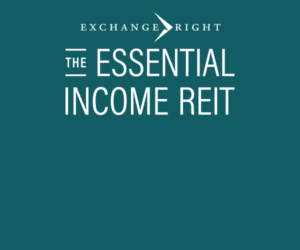Hartman Short Term Income Properties XX, Inc. to Delay Q1 2020 10-Q Filing

May 14, 2020
According to an 8-K filing with the SEC on May 14, Hartman Short Term Income Properties XX, Inc., a nontraded REIT, is unable to meet the filing deadline for Form 10-Q due to circumstances related to COVID-19.
The effect of the circumstances of the COVID-19 with respect to its communications and or dealing with the Company’s financial reporting staff, the Company’s independent registered accounting firm and the Company’s audit committee have resulted in the inability of the Company to file Form 10-Q on May 15, 2020, the prescribed due date for such filing.
The estimated date for filing of Form 10-Q is on or before June 15, 2020.
The Company will report the following risk factor in its Form 10-Q filing:
“Health concerns arising from the outbreak of a health epidemic or pandemic, including the COVID-19 coronavirus, may have an adverse effect on our business.”
“Our business could be materially and adversely affected by the outbreak of a health epidemic or pandemic, including the coronavirus, particularly to the extent and degree to which the outbreak affects the U.S., state and local economies. Our revenues consist primarily of rental income and other tenant reimbursements derived from tenants of our commercial real estate properties. The effects of the COVID-19 coronavirus and other adverse public health developments could materially affect the financial viability of our tenants and their ability to pay rent. While it is premature to accurately predict the ultimate impact of these developments, our results for the quarter ending March 31, 2020 have not been significantly impacted, however, we do expect to be impacted with potentially continuing and possibly adverse impacts beyond March 31, 2020.”
“Our operations could be disrupted if any of our employees, employees of our vendors and business partners or employees of our tenants were to contract or be suspected of having any strain of flu or a coronavirus, since this could require us or vendors and business partners and tenants to quarantine some or all of any effected employees and or disinfect affected workspaces. We could also be adversely affected if government authorities impose mandatory closures, seek voluntary closures or impose restrictions on the operations of our business and the operations of our tenants’ businesses. Even if such measures are not implemented and a virus or other disease does not spread significantly, the perceived risk of infection or public health risk may adversely affect the business and operating results of our tenants and by extension affect our business and operating and results.”
Source: SEC











